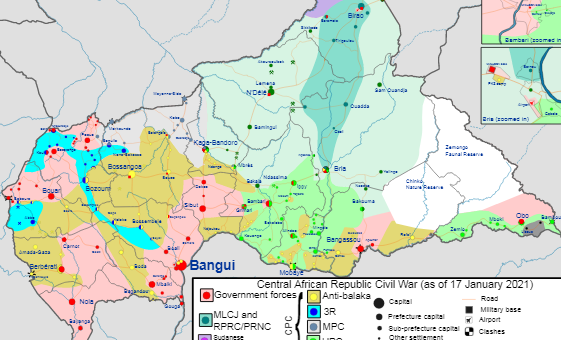The handover of a former Central African Republic (CAR) militia leader and war crimes suspect to the International Criminal Court (ICC) has sent a strong warning to rebel groups, political actors, and others who thrive on impunity, a UN independent human rights expert said on Wednesday, UN News reported.
CAR authorities surrendered Mahamat Said Abdel Kani, a commander of the Séléka rebel coalition, to the court on Sunday, on account of an arrest warrant issued under seal on 7 January.
Mr. Said is suspected of being responsible for war crimes and crimes against humanity, including torture, persecution and enforced disappearance, allegedly committed in the capital, Bangui, in 2013.
“The transfer of Mahamat Said Abdel Kani on 24 January sends a strong message. Justice is an essential pillar of the ongoing peace and reconciliation process and the construction of the rule of law”, said Yao Agbetse, UN Independent Expert on the situation of human rights in the CAR.
Mr. Said will make his first appearance before the ICC on Thursday.
The development is taking place against the backdrop of renewed unrest in the CAR surrounding elections in December.
Last week, the head of the UN mission in the country appealed to the Security Council for more peacekeepers amid escalating attacks by an alliance of armed groups known as the Coalition of Patriots for Change (CPC).
The CAR has had a history of political instability, but has been mired in violence since 2013 when the Séléka, a mainly Muslim coalition, seized power from former President, François Bozizé. Thousands were killed and displaced in fighting between the group and mainly Christian militias, known as Anti-Balaka.
Two members of Anti-Balaka are currently on trial at the ICC, which is based in The Hague, in The Netherlands.
Alfred Yekatom was surrendered to the court in November 2018, and Patrice-Edouard Ngaïssona was transferred there three months later. They were allegedly responsible for crimes that include murder, torture, attacks against civilians, and recruiting child soldiers.
The ICC has combined their cases “to enhance the fairness and expeditiousness of the proceedings”, including by avoiding duplication of evidence and excessive impact on witnesses and victims.
